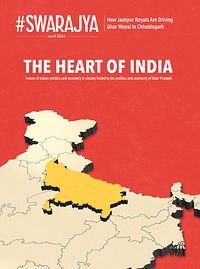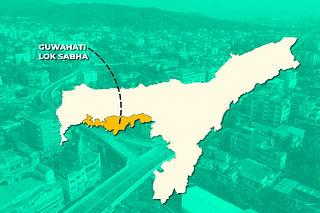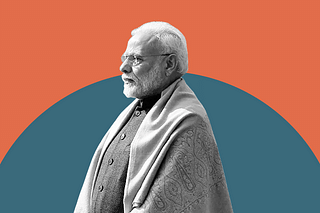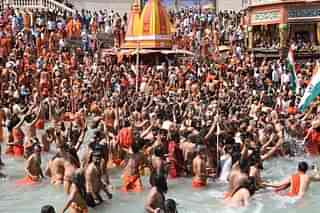Books
How Bias Against Hindus Is Embedded In India's Legal System
Anand Ranganathan
Sep 15, 2023, 05:09 PM | Updated 05:09 PM IST
Save & read from anywhere!
Bookmark stories for easy access on any device or the Swarajya app.
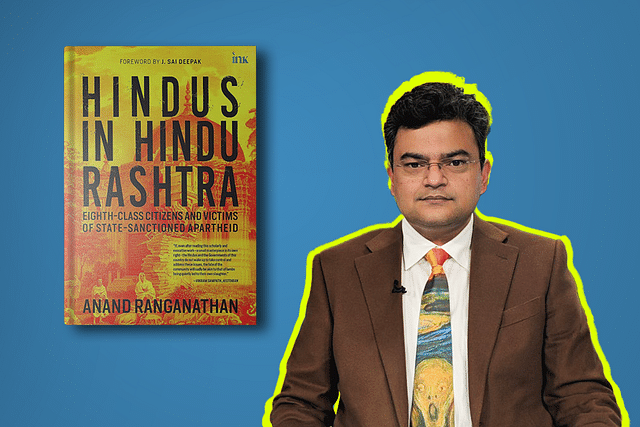
Hindus in Hindu Rashtra: Eighth-class citizens and victims of state-sanctioned apartheid. Anand Ranganathan. BluOne Ink. Pages 135. Rs 399.
Legislations That Appease Non-Hindus But Target Hindus
In Hinduism, religion is an offshoot of the way of life, while in Islam, way of life is an offshoot of religion. Because of this distinction, one is amenable to change and reform while in the other, leave alone reform, even changing a punctuation in the holy verses and commandments is expressly forbidden. And herein lies the dichotomy that plagues our State. We will try and reform one religion and its practices but will recoil from reforming the other. We will break and remove the shackles of intolerance from one but will jangle and rattle them with pride for the other. We will constitutionalise reform in one, through legislations, code bills, laws and IPC sections, but will not only stay away from bringing in similar legislations for the other- we will even overturn Supreme Court judgments that aim to bring in limited reform.
Bigamy, for example, is banned under the Indian law, specifically under Section 494 of the IPC, and carries a seven-year jail term, but it is permitted under Section 2 of the Muslim Personal Law (Shariat) Application Act, 1937. This is not to suggest that bigamy should be allowed for Hindus but, rather, to highlight the double standards when it comes to Muslims.
Another case in point is the Prevention of Communal and Targeted Violence (Access to Justice and Reparations) Bill, 2011, or the so-called Communal Violence Bill that was drafted by the Sonia Gandhi constituted and monitored NAC. Fortunately, it never saw the light of day. If it had, it would have been yet another instrument of discrimination against the majority Hindu community. That is because the revised draft changed the definition of the group targeted in communal violence. Henceforth, this 'group' would have meant either a religious or linguistic minority or Scheduled Castes and Scheduled Tribes. This essentially meant that only minorities and SC/STs could be victims while the perpetrators of communal violence would always be the majority, meaning Hindus. The absurdity of this bill dawned when people realised that Hindus would be branded as perpetrators even when they were the minority, for example in Kashmir, Punjab or Kerala, when SC/STs were subtracted from the Hindu population. Outrageously, this definition was to be used even in cases of sexual assault. When Harsh Mander, one of the NAC members who drafted this ludicrous bill, was asked to explain reasons for such blatant anti-Hindu sentiments, he retorted by saying: 'There is an institutional bias against the minorities that needed to be corrected. In cases of communal violence, the entire criminal justice system has been against minorities. It is to correct this institutional bias that we needed this bill’.
Someone should inform Mr Mander that if at all the entire criminal justice system has been against a community in recent memory, it is against the Kashmiri Hindus who, 30 years later, are still seeking justice for the rape, murder, ethnic cleansing and genocide perpetrated against their community by Muslims-the so-called minority. But according to this Bill, these crimes could not have happened because the minority could not have committed them. Perhaps, that is why the Supreme Court also refuses to open these cases of atrocities.
The truth is that the State has been blackmailed and browbeaten to such an extent that the so-called liberals, progressives and conscientious feminists outrage on Karvachauth but slither away under their favourite Parthasarathy rock when it comes to giving equal inheritance rights to Muslim women. These feminists will talk of anything but the fact that even courts in our country have begun to ratify the allowance for Muslims to marry on attainment of puberty, violating the most sacrosanct of our Laws, namely the Prohibition of Child Marriage Act.
And the high court judge who okayed the marriage of a pubescent Muslim girl is now in the Supreme Court. He was one of the judges who blamed Nupur Sharma for the beheading of the tailor Kanhaiya Lal.
Save & read from anywhere!
Bookmark stories for easy access on any device or the Swarajya app.
Anand Ranganathan is the author of three novels, most recently of The Rat Eater (co-authored; Juggernaut Books). A product of St Stephen’s College, Delhi, and Pembroke College, Cambridge, he is a scientist based in Delhi.
Support Swarajya's 50 Ground Reports Project & Sponsor A Story
Every general election Swarajya does a 50 ground reports project.
Aimed only at serious readers and those who appreciate the nuances of political undercurrents, the project provides a sense of India's electoral landscape. As you know, these reports are produced after considerable investment of travel, time and effort on the ground.
This time too we've kicked off the project in style and have covered over 30 constituencies already. If you're someone who appreciates such work and have enjoyed our coverage please consider sponsoring a ground report for just Rs 2999 to Rs 19,999 - it goes a long way in helping us produce more quality reportage.
You can also back this project by becoming a subscriber for as little as Rs 999 - so do click on this links and choose a plan that suits you and back us.
Click below to contribute.
